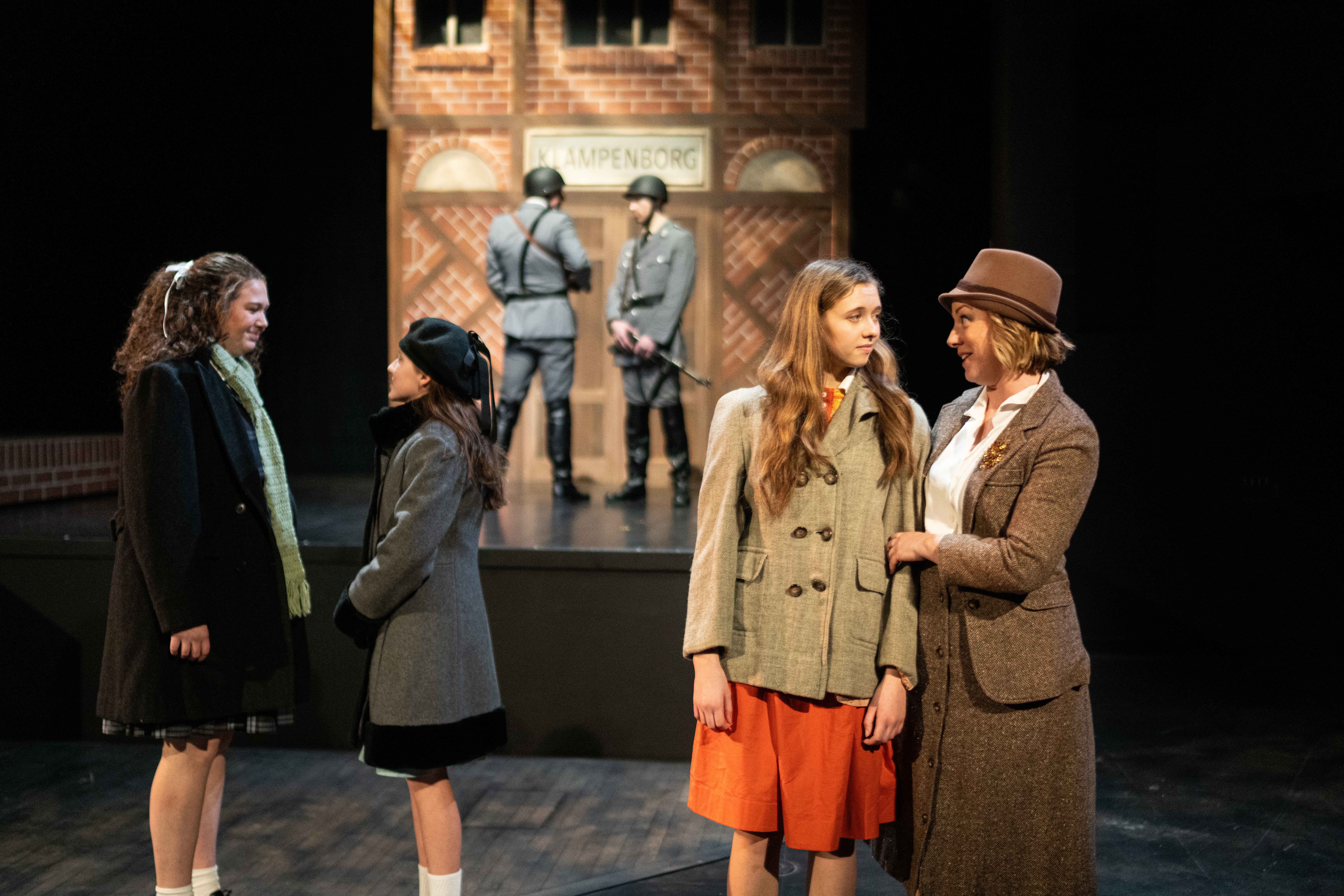Titus Andronicus
By William Shakespeare
Directed by Matt Wallace
Review by Allie Keel
Entire contents copyright © 2016 Allie Keel. All rights reserved.
If you’re lucky, the stench of death will hang in the air. When you get out of your car and make your way past the glitzy dance club to the dingy warehouse outback, the stench helps set the scene.
The warehouse is hazy, filled with smoke. There are only utility lights, strung around the empty space. It’s an old slaughterhouse, a place that knows death. There are drains in the floor for blood. It’s the kind of place you may have wondered into by accident before, and something in your lizard brain probably said, “Don’t go in there.”
This is where you get to watch one of Shakespeare’s least performed and, let’s be honest, most problematic plays. It’s gory and strange and operatic. It’s also on some dicey ground rhetorically, but we’ll get there later. Let’s go back to that “don’t walk in the room feeling.”
Jon Huffman in Titus Andronicus. Photo by Brian Owen.
It’s gonna be mostly dispelled by Matt Wallace’s grinning face. He was standing at the warehouse door opening night, and if his habits in the park are any indication, he’ll be there every night.
Maybe I shouldn’t go on about the warehouse so much, but the setting for Kentucky Shakespeare Festival’s first ever fall show is so much fun I couldn’t leave it out. It’s got such a gleefully horrific vibe. It’s like going to one of those haunted houses, and getting a night of Shakespeare while you are there.
The story here centers around Titus, a Roman patriarch who begins the play returning from wars in Gaul, with a number of high value prisoners: Tamora, the Queen of the Goths, her sons Demetrius and Chiron, and her retainer Aaron, a Moor.
I won’t get into the plot too much; one of Wallace’s (and dramaturg Gregory Maupin’s) strongest skills is making Shakespeare clear enough that someone who doesn’t know the plot can walk in cold and still follow the action. But there is a surfeit of bloody business, and in the style of many of Shakespeare’s tragedies, there aren’t too many characters left alive by the time the lights go up.
Wallace has set the piece in modern dress, and leaned into a mafia-by-way-of-Tarantino look for the Andronici. Wallace’s overall directorial tone is somewhere in the B-movie, Eli Roth horror film territory -perfect for a play that is almost goofily gory- and John Huffman rises to the occasion as the titular Titus. He comes across as the kind of hard-edged killer who can love his daughter and sons, but wouldn’t hesitate to leave a horse head in your bed to send a message. He chews the perfect amount of scenery in the crazier moments of the script – his insane giggle is amazing – but is always able to bring it back to a place of genuine emotion when Titus needs to feel anguish over the sorrows heaped on his head. Tom Luce appears as Marcus Andronicus, Titus’s brother, and the two are terrific onstage together.
The Gauls are outfitted in a sort of Misfits-esque punk/metal look. It’s a stylistic choice that has been done more than once in the history of Shakespeare, and borders on over done. But it works here, carried by the zeal of the actors, especially Jennifer Pennington as Tamora. She’s delightful, playing the other end of the horror spectrum with wide-eyed kindness that you just know hides a whole bucket of crazy.
Tamora’s sons, Jon Becraft as Chiron and Jon Patrick O’Brien as Demetrius, aren’t given a lot of script to work with, but they sell their heel status with their strutting and leering, often glaring down at the audience from the dark recesses of the upper floor of the warehouse.
Which brings us to Aaron (Dathan Hooper), and one of the more problematic aspects of the script rhetorically. He’s an evil Moor, the evilest in a pack of evil, and his constant verbal references to the fact the he is black and evil are really uncomfortable. 400 years ago you could rile up the groundlings (and the aristocracy) with crude notions of how evil black people are. Come to think of it, you can do that today too. I don’t see it as a reason to bury this script, but it’s definitely something that needs to be addressed in conversations about the play, as we hold it up and say: “this is the literary canon, this is what our creators have been slinging for a long time.”
Although anyone paying close attention will also notice that Shakespeare basically coined the phrase “white privilege” in a scene between Aaron, Chiron, and Demtrius. “You know not the privilege of your hue,” Aaron tells them.
(Warning: spoilers) The other really dicey part of the script is the treatment of Lavinia, Titus’s daughter. While Katherine Martin does incredible work as Lavinia, Titus’s much-wronged daughter, the moments leading up to her brutal sexual assault are tough to watch, as are the moments after, as she staggers around bloody and mute. In a television landscape that has embraced rape as a plot point, we’re spending time talking about why and how writers use violence against women for drama. One of the big answers we’ve come up with is that the action should be used to develop the survivor’s character. Lavinia’s assault is 100% about Titus, and what it costs him. Again, we can’t really hold Shakespeare accountable to standards we are only just now coming up with, but it still needs to be pointed out when it happens in the great works.
Despite the problems inherent in the script, which include the above rhetorical issues as well as plot devices that require the audience to turn off it’s brain a bit, Wallace and company have turned in a great night of theatre. The show as directed is not for kids at all. The violence and gore set it squarely in R rated territory.
But it’s a bloody good way to spend an October evening, and I hope we see more October shows from Kentucky Shakespeare.
Titus Andronicus
October 13-16; 20-23; 27-31, 2016 @ 7:30PM
Tickets $20 http://www.kyshakespeare.com/titus/
Rated “R” – for ages 17+.
Kentucky Shakespeare
Play Louisville’s Warehouse
1101 E. Washington Street
Louisville, KY 40206
Allie Keel is a Louisville based playwright, poet, storyteller, and freelance journalist. They have been published in Word Hotel, their plays have been produced by Theatre [502] and Derby City Playwrights, and they were invited to read their work at the 2014 Writer’s Block. They are frequent contributor to LEO Weekly and Insider Louisville, where they have been given the (informal) title of “Chief of the Bureau of Quirk.”





